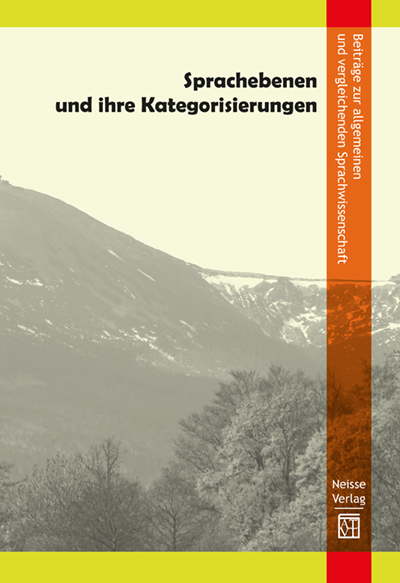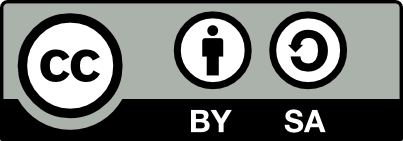
Beiträge zur allgemeinen und vergleichenden Sprachwissenschaft / Contributions to General and Comparative Linguistics
Issue 6 (2017): Sprachebenen und ihre Kategorisierungen
Edited by: Edyta Błachut, Adam Gołębiowski
Verbalphrase im deutschen und im polnischen Expertentext (am Beispiel philologischer Aufsätze) / Verbal phrases in German and Polish scientific texts (illustrated by the example of philological papers)
DOI: 10.23817/bzspr.6-1 (published online: 2021-04-12)
pp. 7–19
Keywords: verbal phrases in German and Polish, grammatical categories, syntactic analysis, academic writing
This paper presents the results of a corpus-based comparison of verbal phrases in German and Polish scientific texts. Describing the verb and its dependent elements is an important step-leading to better comprehension and more effective syntactic analysis of a sentence. The distribution of grammatical categories such as person, number, tense, mood and voice, will be discussed in order to show their specific functions in the scientific texts in both languages. Special attention will be paid to how different views of the world are expressed in the texts, due to the inflexion discrepancies in German and Polish tradition of academic writing.
„Functional load“ und Schwierigkeitsgrad des Lautes als Elemente der Glokalisierung im Rahmen des Ausspracheunterrichts am Beispiel des Niederländischen / Functional load and difficulty level of a sound as elements of glocalisation in the didactics of Dutch pronunciation
DOI: 10.23817/bzspr.6-2 (published online: 2021-04-12)
pp. 21–34
Keywords: functional load, difficulty level, pronunciation, Dutch, glocalisation
Making a classification of sounds of a foreign language is a very important part of pronunciation classes. Such a classification is mostly based on difficulty level of sounds but it can be extended by adding other factors, like the functional load of a sound. The article tries to explore the phenomenon of functional load (what it is, how it is connected to the difficulty level, does it play a role in selected books on Dutch pronunciation etc.). Furthermore, it discusses its role in preparing a classification of (Dutch) vowels for didactical purposes, especially how a classification based on the difficulty level of sounds changes when such factor as the functional load is taken into account. Finally, the discussion focuses on implications of the research for effective pronunciation exercises in Dutch for a specific group of students which can be seen as an example of glocalisation in the didactics of pronunciation.
Ein Vorschlag der semantischen Klassifizierung von den lexikalischen Entlehnungen aus dem Deutschen ins Polnische des 20. Jahrhunderts / A proposal of a semantic classification of loanwords of German origin in the Polish language of the 20th century
DOI: 10.23817/bzspr.6-3 (published online: 2021-04-12)
pp. 35–51
Keywords: loanwords, etymology, German-Polish contrastive studies
The aim of the present paper is the semantic classification of borrowings transferred from German into Polish which are listed in selected etymological dictionaries. Only those loans of German origin are examined whose time of transfer and etymology were clearly indicated. The paper takes into account only words which were borrowed in the 20th century.
Erwägungen zu Adjektiven und Quantoren in Nominalphrasenstrukturen / Considerations on adjectives and quantifiers in noun-phrase structures
DOI: 10.23817/bzspr.6-4 (published online: 2021-04-12)
pp. 54–65
Keywords: noun phrase, adjective, quantifier, determiner phrase (DP), adjective phrase (AP), quantifier phrase (QP)
This paper is a study of the status of adjectives and quantifiers in noun-phrase structures. Its aim is to revise the conception and conclusions presented by Feret (2014). First, the cognitive grammar perspective on conceptual nominal structures and functions of adjectives and quantifiers is presented and reviewed. Next, conclusions concerning positioning of an AP (adjective phrase) and QP (quantifier phrase) in the DP-structure as seen from the generative perspective presented by Feret (2014) are introduced and revised.
Mehrfache syntaktisch gleiche Nachfeldbesetzung und ihre Funktionen – Ergebnisse einer diachronen Analyse religiöser Texte / Different types of elements occurring in the “Nachfeld” field and their functions – the results of a diachronic analysis of German religious texts
DOI: 10.23817/bzspr.6-5 (published online: 2021-04-12)
pp. 67–101
Keywords: historical German syntax, early-new High German, sentence bracket, Nachfeld field
This article presents the results of a diachronic analysis of German Protestant funeral sermons which were published in the period from the mid-16th to the early 19th century. It analyses verb-final sentences in which more than one item with the same syntactic function appears in the Nachfeld field, i.e. to the right of the finite verb form. The aim was to examine (i) how this topological structure was manifested, (ii) which parts of the sentence occurred in it, (iii) how its development proceeded in the surveyed period (quantitative aspect), and (iv) what its purpose was.
Ausgewählte Bemerkungen zur Struktur des mentalen Lexikons aufgrund der Untersuchungen von aphasischen Patienten / Selected insights on structures of the mental lexicon on the basis of research on patients with aphasia
DOI: 10.23817/bzspr.6-6 (published online: 2021-04-12)
pp. 104–112
Keywords: aphasia, lexical disorders, semantics
One of the most interesting problems concerning human speech is the complicated two-way correlation between language and the brain. Cognitive science plays a significant role in understanding patients with aphasic disorders. This shows the vital role of language in discovering the world. The article attempts to answer the question of how semantics is represented in the utterances of people with aphasia-type speech disorders after a stroke. It should be noted that lexical disorders (which concern recalling and using words) are the main symptom of all types of aphasia. Impoverished vocabulary is accompanied by limited association abilities, which in turn leads to the question of the relationship between thought and language. Aphasia can be understood as a linguistic phenomenon. The term ‘aphasia’ was introduced by a French paediatrician and neurologist, Armand Trousseau, in 1865 to describe disorders in verbal expression of thoughts. Their cause is, according to Trousseau, the damage of the cerebral cortex (cf. Panasiuk 2013: 27). Kurt Goldstein, the father of aphasiology, interprets aphasic speech disorders in terms of abstract attitude. William M. Kogan sees the cause of aphasia in the distortion of the word-object relations.
Textaufbau und Textorganisation in linguistischen Wissenschaftstexten. Ein deutsch-polnischer Vergleich / Text structure and text organisation in Polish scientific texts written by linguists: A German-Polish comparison
DOI: 10.23817/bzspr.6-7 (published online: 2021-04-12)
pp. 113–127
Keywords: text structure, text organisation, linguistic texts, German-Polish comparison
The article analyses the text structure and text organisation in Polish scientific texts written by linguists from the German-Polish perspective. Texts of the Polish linguists are examined with the focus on the macro level. In addition, the texts are searched for the meta-texts concerning the text organisation. The underlying assumption of the investigation is that Polish linguists design and organise their texts differently from German linguists.
Frühneuhochdeutsche Neuerungen im Spiegel der Schreibung der Krakauer Stadtkanzlei / The Early New High German characteristics in light of spelling in the town council of Cracow
DOI: 10.23817/bzspr.6-8 (published online: 2021-04-12)
pp. 129–139
Keywords: town council, Early New High German, charter, Cracow
The article hereunder presents the language analysis of chosen medieval charters from 14th century taken from the “Antiquum Registrum Privilegiorum Et Statutorum Civitatis Cracoviensis” published by Stanisław Estreicher in 1936 in Cracow. The texts of the unknown scriveners were written in Early New High German in the Silesian dialect, what can be proved on the basis of legal annotations. The author introduces the results of his analysis showing the Early New High German characteristic features illustrated by appropriate examples.
Zum Gebrauch des Modalverbs können im fachinternen medizinischen Diskurs / The use of the modal verb ‘können’ in medical specialised discourse
DOI: 10.23817/bzspr.6-9 (published online: 2021-04-12)
pp. 141–162
Keywords: modal verbs, verb ‘können’, specialised discourse, medical discourse
Modal verbs are language phenomena that have been in the centre of linguistic attention for years. They are characterised by grammatical, semantic and functional flexibility. Yet research on the use of modal verbs in specialised discourse is scarce. The present paper provides the results of the analysis which was devoted to the use of the modal verb ‘können’ in medical specialised discourse.
Sich in die Abhängigkeit begeben – zum Gefügenomen in Funktionsverbgefügen / Sich in die Abhängigkeit begeben – about the event nominal in light-verb constructions
DOI: 10.23817/bzspr.6-10 (published online: 2021-04-12)
pp. 163–182
Keywords: event nominal, light-verb constructions, scenario
The paper operates on the broader “light-verb construction” term as defined by Engel (1991/1992), linking it to the concept of prototyping, and interpreting it as a scalar continuum. Since those are complex predicates, there is a division of labour between two predicate elements, so as to describe the event expressed in the event nominal in the best possible way. Thus, communication lines emerge providing the scenario with new perspectives (in Abhängigkeit sein – in Abhängigkeit geraten – sich in Abhängigkeit begeben). In this process, there is much innovation potential, as new light verbs create dynamism within the existing scenarios.

